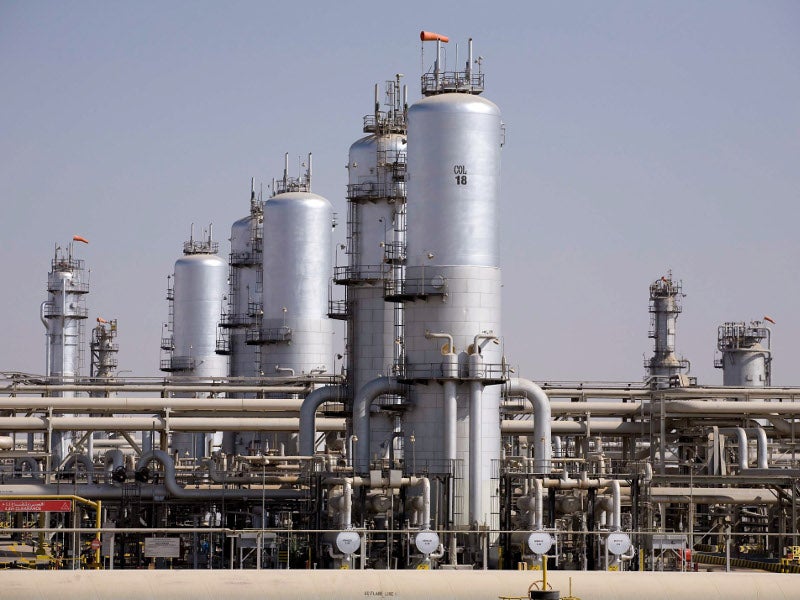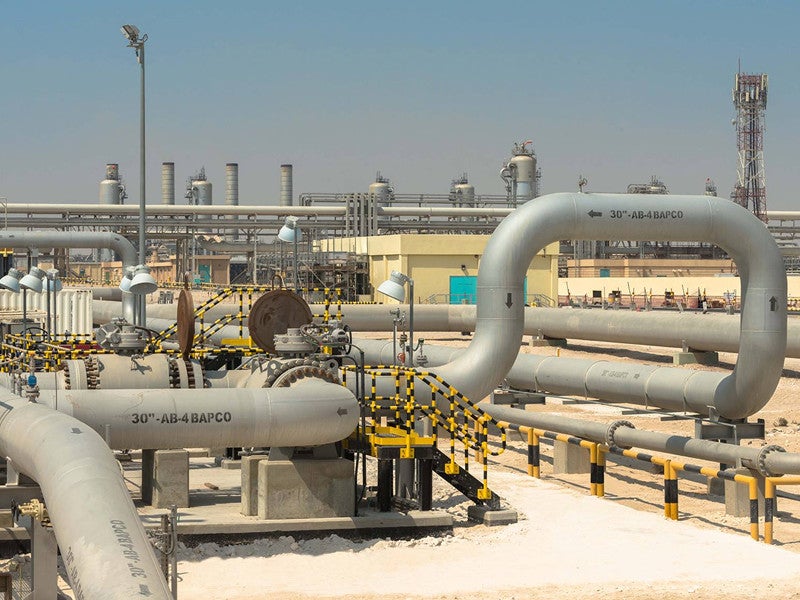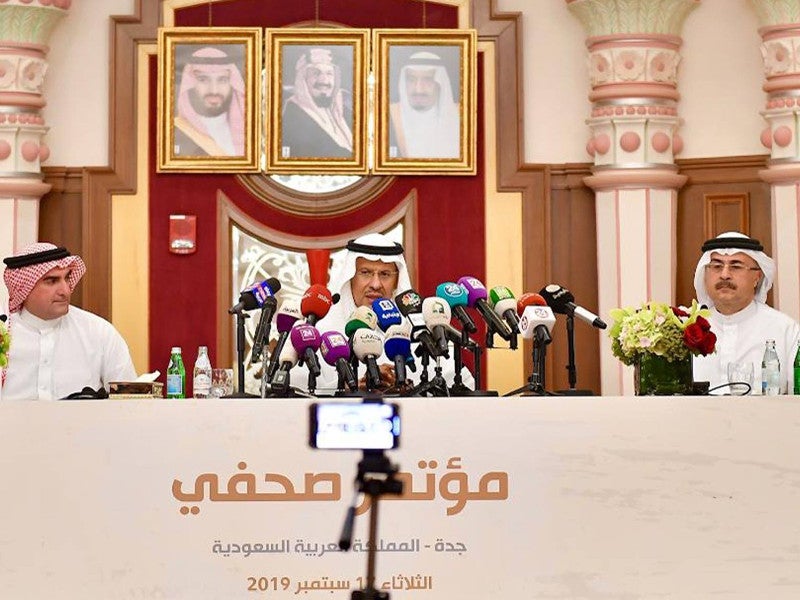The Abqaiq oil processing facility, located approximately 60km south-west of Dhahran in Saudi Arabia’s Eastern Province, is the world’s biggest oil processing and crude stabilisation plant.
Owned and operated by state-owned Saudi Aramco, the Abqaiq facility has a capacity to process up to seven million barrels of crude oil a day, which accounts for more than half of Saudi Arabia’s crude production capacity and approximately seven percent of the global oil supply.
The 70-year-old facility serves as the main processing hub for Arabian Light and Arabian Extra Light crude oils, and thus constitutes the key oil processing infrastructure for Saudi Aramco’s day-to-day oil operations.
The Abqaiq processing facility receives crude supply from major oil fields in the oil-rich Eastern Province, including the world biggest Ghawar field, to remove impurities such as sulphur and sand, before sending it to major refineries in the Kingdom for final processing.
Given its strategic significance, the Abqaiq facility has been prone to terrorist attacks for long, while the recent aerial strike in September 2019 caused severe damage to the facility and disrupted Saudi Arabia’s global crude supply.
Terrorist attack on Abqaiq
On 14 September 2019, the Abqaiq oil processing facility as well as the Khurais oil field that lies 177km south-west of Abqaiq were struck by 25 drones and missiles from the air.
The Abqaiq facility was attacked in 18 different locations that left some of the storage tanks and refinery towers damaged.
Production at the Khurais facility that produces up to 1.5 million barrels of oil per day (Mbopd) was resumed after 24 hours, while production at a rate of 2Mbopd was restored at Abqaiq within 48 hours after the attack.
The terror strike shut down the kingdom’s Arab Light and Arab Extra Light output by 5.7Mbopd, which was approximately half of its total daily oil production capacity.
Repair works at the damaged facilities are being carried out in full swing. A production capacity of 4.9Mbopd was claimed to have been restored at the Abqaiq facility by the end of September 2019. The entire output of the plant along with the Kingdom’s maximum production capacity is expected to be restored by the end of November 2019.
Although the Houthi rebels of Yemen have claimed responsibility for the twin attacks, the governments of Saudi Arabia and the US have accused of Iran’s involvement.
Previously in 2006, Saudi security forces had prevented a suicide bombing attempt at the Abqaiq facility by the Al-Qaeda terrorist outfit.
Abqaiq facility infrastructure details
The Abqaiq complex houses three primary processing units that include an oil processing unit, a natural gas liquids (NGL) facility, and a utilities unit.
The oil processing unit comprises multiple spheroids as well as 18 stabiliser columns for sulphur removal and for separation of gas and light hydrocarbons from the crude oil.
The off gas from the oil processing unit is processed at the NGL facility, which features eight compression trains, apart from stripper and de-ethaniser columns.
The oil and NGL facilities are supplied with power, steam, and treated water from the utilities unit of the complex.
A total of six power generators, including three steam and three combustion gas turbine generators, are utilised to supply power to the processing facility, while a total of 14 boilers are used for steam generation for the oil processing and NGL facilities, turbines, and compressors.
The facility also houses a water treatment plant, which consists of 16 reverse osmosis units to provide demineralised water.
Two steam-driven and three motor-driven air compressors are utilised to provide instrument air required for control valves operations at the facility.
Crude supply
The Abqaiq oil processing facility mainly receives crude supply from the gas and oil separation plants (GOSP) of the Ghawar field. It is also connected to the Shaybah oil field through a 635km pipeline.
The sulphur-free and stabilised oil from the plant is further sent to the RasTanura and Jubail refineries on the east coast and to the Yanbu refinery on the west coast.
The Abqaiq facility is also directly connected to the Bapco refinery in Bahrain, through the 112km-long and 30in-diameter AB-4 pipeline, which was commissioned in October 2018.
The light gases produced at the facility are transported to other gas plants for processing, while the NGL products are sent to the RasTanura refinery for fractionation.





